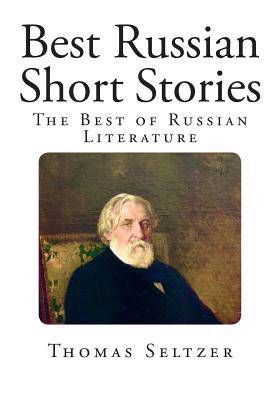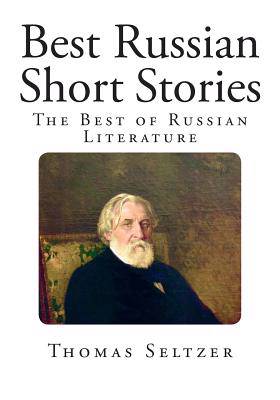
- Retrait gratuit dans votre magasin Club
- 7.000.000 titres dans notre catalogue
- Payer en toute sécurité
- Toujours un magasin près de chez vous
- Retrait gratuit dans votre magasin Club
- 7.000.0000 titres dans notre catalogue
- Payer en toute sécurité
- Toujours un magasin près de chez vous
Description
Best Russian Short Stories - Compiled and Edited by Thomas Seltzer. Pushkin - Gogol - Turgenev - Dostoyevsky - Tolstoy - Saltykov - Korolenko - Garshin - Chekhov - Sologub - Potapenko - Semyonov - Gorky - Andreyev - Artzybashev - Kuprin. Conceive the joy of a lover of nature who, leaving the art galleries, wanders out among the trees and wild flowers and birds that the pictures of the galleries have sentimentalised. It is some such joy that the man who truly loves the noblest in letters feels when tasting for the first time the simple delights of Russian literature. French and English and German authors, too, occasionally, offer works of lofty, simple naturalness; but the very keynote to the whole of Russian literature is simplicity, naturalness, veraciousness. Another essentially Russian trait is the quite unaffected conception that the lowly are on a plane of equality with the so-called upper classes. When the Englishman Dickens wrote with his profound pity and understanding of the poor, there was yet a bit; of remoteness, perhaps, even, a bit of caricature, in his treatment of them. He showed their sufferings to the rest of the world with a "Behold how the other half lives!" The Russian writes of the poor, as it were, from within, as one of them, with no eye to theatrical effect upon the well-to-do. There is no insistence upon peculiar virtues or vices. The poor are portrayed just as they are, as human beings like the rest of us. A democratic spirit is reflected, breathing a broad humanity, a true universality, an unstudied generosity that proceed not from the intellectual conviction that to understand all is to forgive all, but from an instinctive feeling that no man has the right to set himself up as a judge over another, that one can only observe and record. In 1834 two short stories appeared, The Queen of Spades, by Pushkin, and The Cloak, by Gogol. The first was a finishing-off of the old, outgoing style of romanticism, the other was the beginning of the new, the characteristically Russian style. We read Pushkin's Queen of Spades, the first story in the volume, and the likelihood is we shall enjoy it greatly. "But why is it Russian?" we ask. The answer is, "It is not Russian." It might have been printed in an American magazine over the name of John Brown. But, now, take the very next story in the volume, The Cloak. "Ah," you exclaim, "a genuine Russian story, Surely. You cannot palm it off on me over the name of Jones or Smith." Why? Because The Cloak for the first time strikes that truly Russian note of deep sympathy with the disinherited. It is not yet wholly free from artificiality, and so is not yet typical of the purely realistic fiction that reached its perfected development in Turgenev and Tolstoy.
Spécifications
Parties prenantes
- Auteur(s) :
- Editeur:
Contenu
- Nombre de pages :
- 268
- Langue:
- Anglais
- Collection :
Caractéristiques
- EAN:
- 9781500173289
- Date de parution :
- 12-06-14
- Format:
- Livre broché
- Format numérique:
- Trade paperback (VS)
- Dimensions :
- 178 mm x 254 mm
- Poids :
- 471 g

Les avis
Nous publions uniquement les avis qui respectent les conditions requises. Consultez nos conditions pour les avis.






